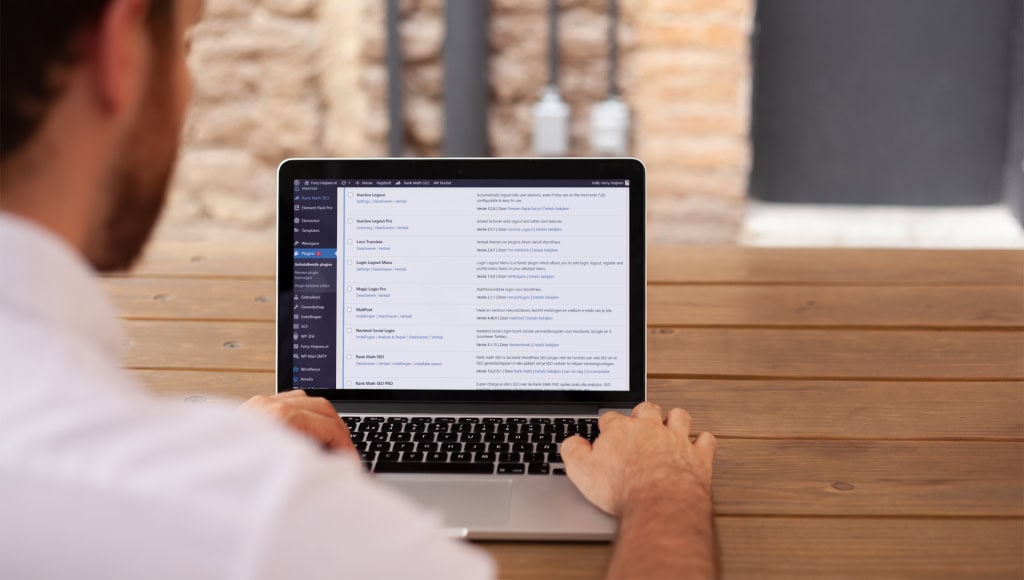What should you pay attention to when choosing the right WordPress plugins?

WordPress plugins are the backbone of functionality and flexibility of a WordPress website. However, with thousands of options available, it is not always easy to choose the right plugin for your specific needs. In this article, we will take a closer look at what to look for when choosing WordPress plugins so that you can make the best decisions for your website.
Purpose and functionality
Before you start looking for plugins, it is essential to clearly define what goal you want to achieve and what functionalities you need. Whether it’s to add a contact form, improve security or optimize the speed of your website, a good understanding of your goal will help you search more specifically for the right plugins.
Reliability and reviews
One of the best ways to judge the quality of a plugin is to consult other users’ ratings and reviews. Check reviews in the WordPress Plugin Repository or look for user experiences on trusted websites and forums. Pay attention to feedback on performance, reliability, and customer support.
Support and updates
It is important to choose plugins that are regularly updated and supported by the developer. Updates are not only crucial for maintaining security and compatibility with the latest versions of WordPress, but they can also introduce new features and performance improvements. Check the update history and see if the developer is active in customer support.
Compatibility
Before installing a plugin, it is important to check that it is compatible with your version of WordPress and other plugins you are already using. In fact, incompatibility can lead to conflicts and problems with the functionality of your website. Consult the plugin’s documentation and look for information about compatibility with other popular plugins.
Performance and speed
Plugins can have a significant impact on your website’s performance and load time. Therefore, choose plugins that are optimized for speed and minimal server load. Avoid plugins that consume a lot of server resources or are known for slow performance. You can use tools such as GTmetrix or Pingdom to test your website’s load time after you install a plugin.
Security
Security is a crucial consideration when choosing plugins, as vulnerable plugins pose a potential security risk to your website. Check the developer’s reputation and look for reviews related to security issues. Also, always install plugins from reliable sources and avoid downloading plugins from dubious websites.
Usability
A good plugin should be intuitive and easy to use, even for users with no technical background. Pay attention to the interface and navigation of the plugin and see if it is easy to find and adjust the desired settings. User reviews can also provide valuable insights into a plugin’s user experience.
Functionality overlap and bloatware
Beware of plugins that offer overlapping functionality with other plugins you already use. Installing multiple plugins that perform the same tasks can lead to conflicts and unnecessary complexity of your website. Also, avoid installing plugins with excessive features you don’t need, as this can slow down your website’s load time and reduce performance.
Choosing the right WordPress plugins is a crucial step in building a successful and high-performing website. By considering factors such as purpose and functionality, reliability, compatibility and performance, you can ensure that you select the best plugins that meet your specific needs. Take the time to research thoroughly and, if necessary, experiment with different options until you find the perfect combination of plugins for your WordPress website.
